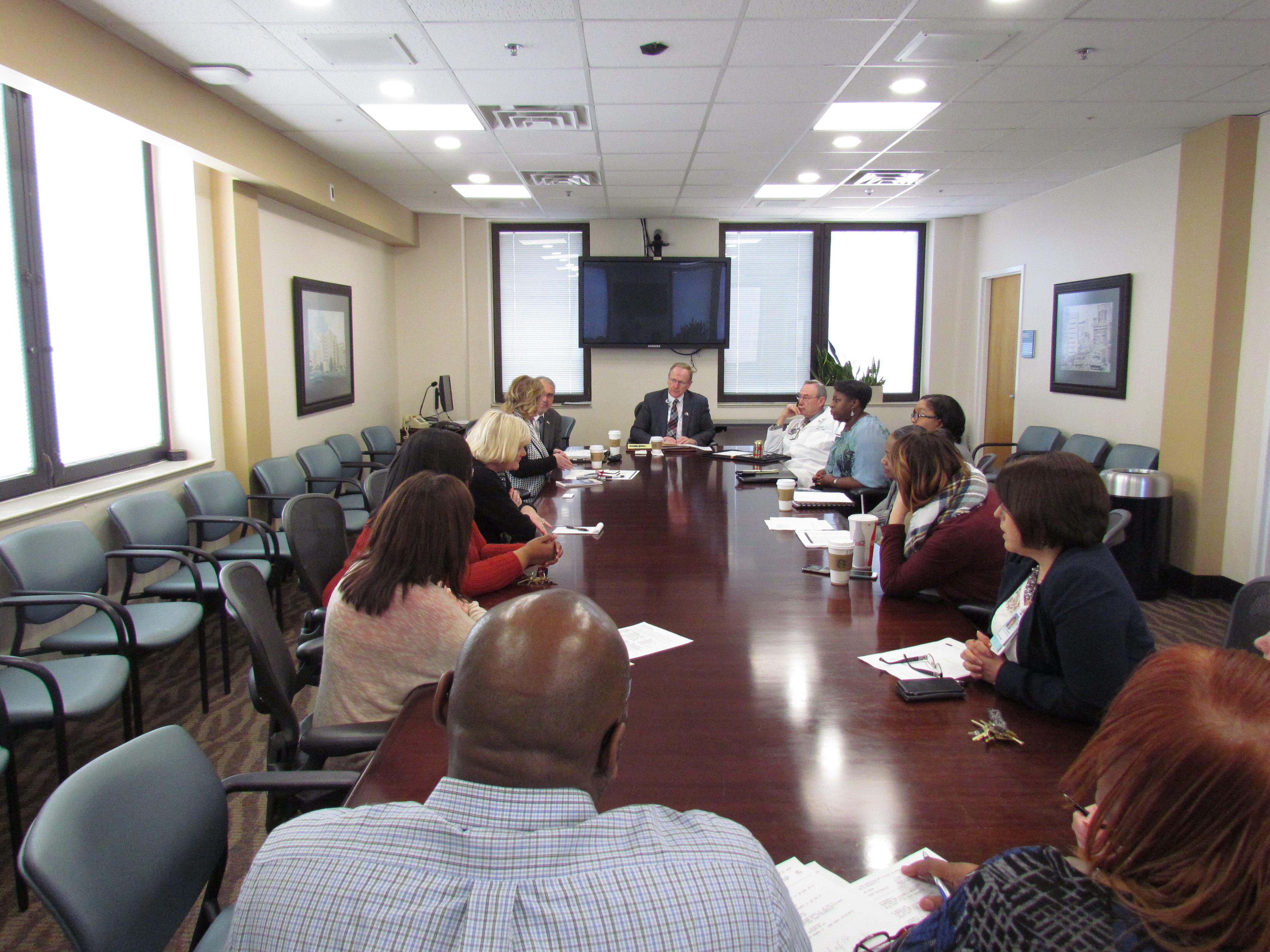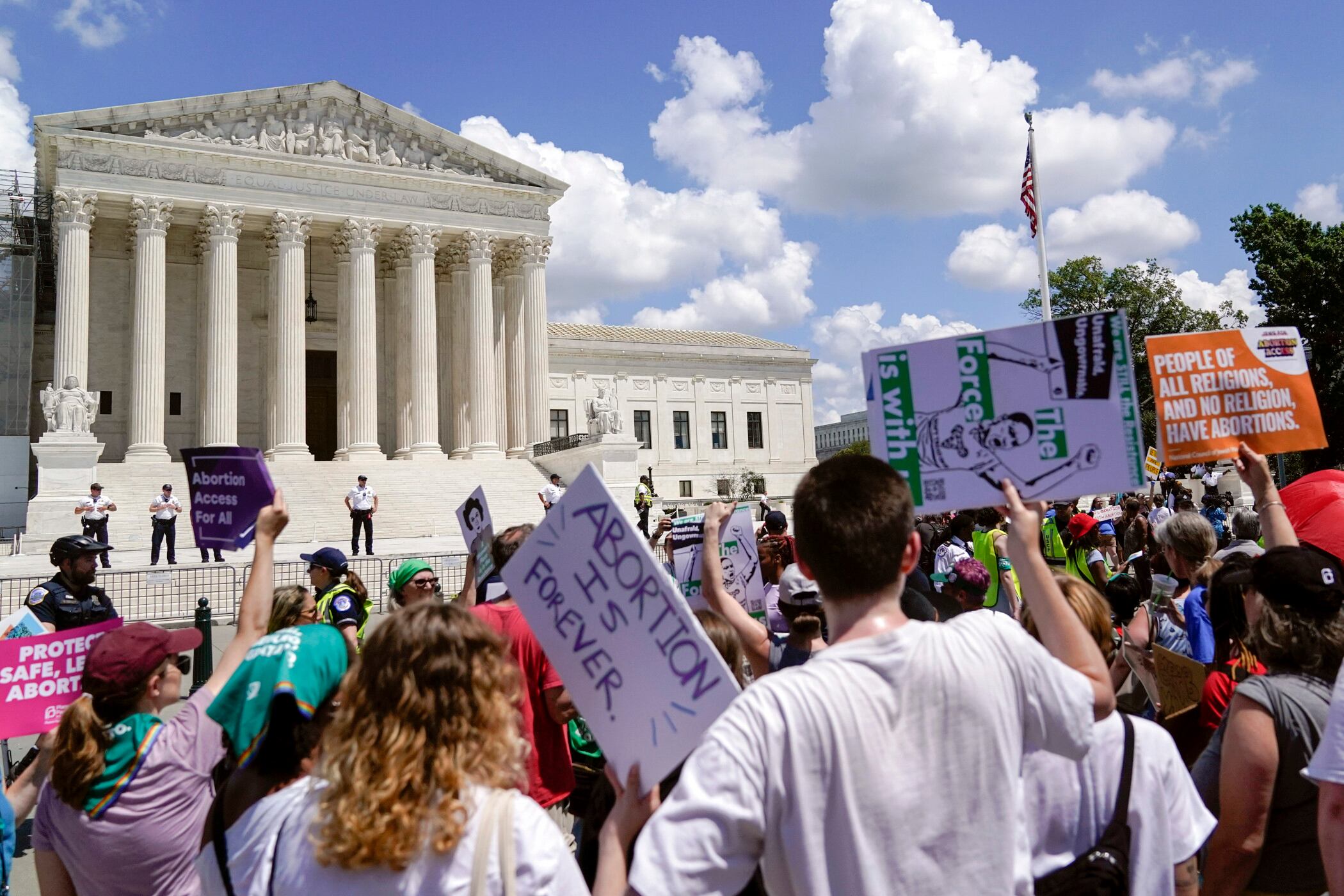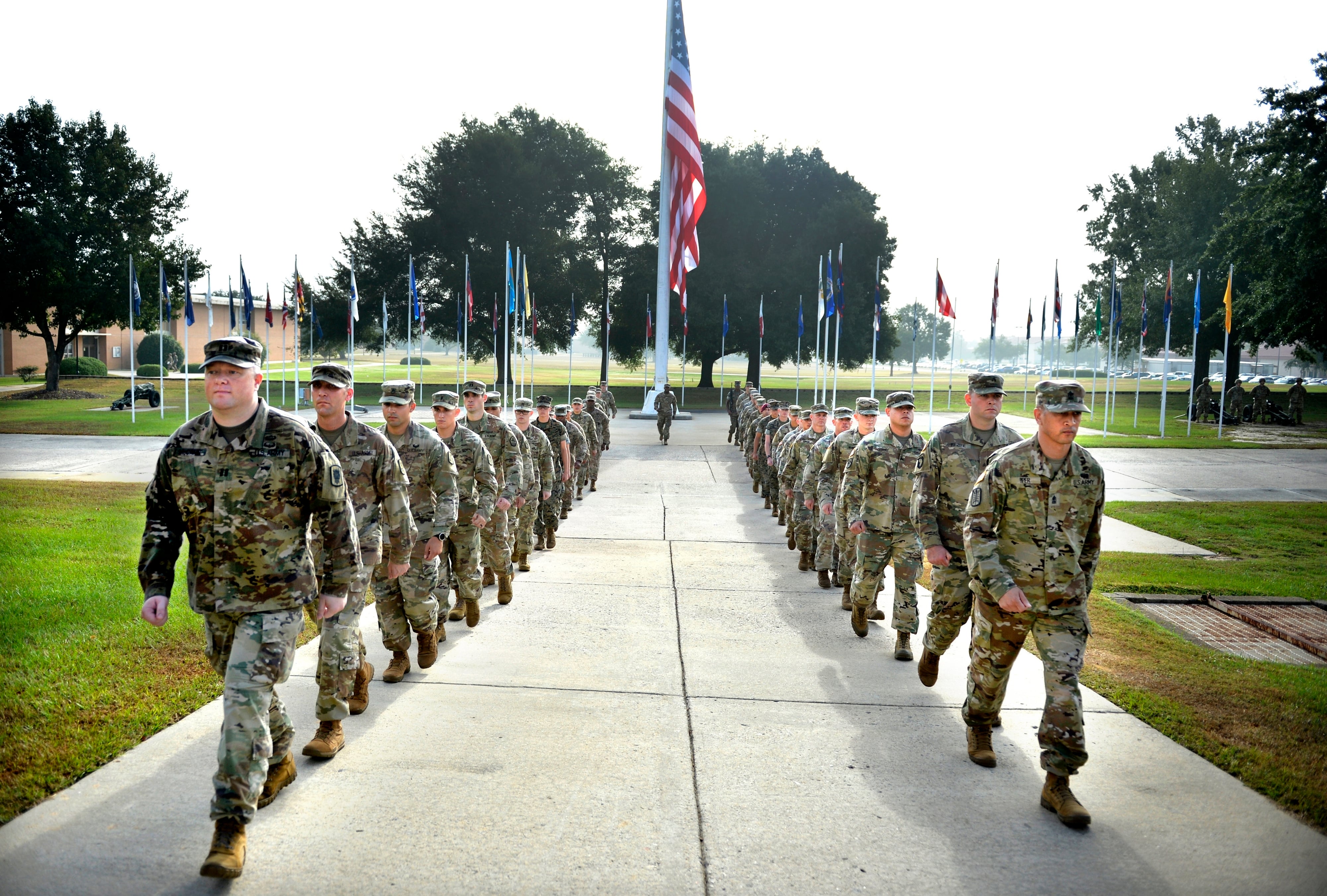Few enlisted leaders in recent decades have had as great an impact on airmen as Chief Master Sergeant of the Air Force James Cody.
Since becoming the top enlisted leader three years ago, Cody has shepherded the biggest reform to how airmen are evaluated and promoted in decades. This includes "forced distribution" quotas that limit how many airmen can get top promotion recommendations.
As he enters his last full year as chief — his four-year tenure will end in early 2017 — Cody's attention is focused on finishing the job on the new enlisted performance system. He's also concerned about the steep operations tempo the Air Force faces.
Cody recently spoke with Air Force Times Staff Writer Stephen Losey in his Pentagon office
The overhaul of the enlisted evaluation system has been a massive undertaking. What remains to be done?
It's the end of the beginning for at least the active-duty side of the house. We still have some rolling out to do on the reserve side because their promotions are handled differently than the active duty.
But for the active duty, the first iteration of forced distribution [for technical sergeants] is out there. We will go through the next two with senior airman and staff sergeant [in January and March], but it's the same philosophy. The form's there, the policy's there. I think everybody's getting themselves immersed in it and asking lots of questions, as you would expect with any new policy. This one just has more questions because there are more people that it impacts.
Our airmen are handling it well.
What's still to come for reservists?
The forms are being rolled out, but their implementation is at a different pace than ours. They're already using the chief [master sergeant]'s [enlisted performance report] forms, but they're not using all the other forms yet. They're going to incrementally get that. At the end state, they'll be about 18 months behind the active-duty side of the house for full implementation. But they're implementing the same way.
How might the forced distribution quotas affect airmen in high-performing fields like the Thunderbirds and developmental special duties like military training instructors? In a unit where all airmen are intended to be the best of the best, will restricting how many can get the top promotion recommendations leave some at a disadvantage?
That's certainly a question that has come up with many of our airmen, particularly airmen [nominated to be] in those special duties. They are great airmen. They're really great airmen. That doesn't mean that they, racked and stacked against all airmen in the Air Force, are the best at any given time. It's impossible to do that unless you put them all in the same room and have the same person doing the evaluation.
But this is not a new dynamic, let's be honest. We didn't create any new special duties. These are jobs that have been around in our Air Force for a long time and we've always had really high-quality airmen doing great work in them every day. And they've always had to compete for promotion against the people that were in those duties with them.
So it's like any other unit. We recognize and reward sustained performance over time. And there's a great airman in that unit, [but] it can be a little bit presumptuous to think that that airman would have been the one who would have received that [promotion] in another unit. It's easy to say it, but it's a little harder to prove it.
Forced distribution just says in every unit that you're in, there's going to be a lineup of those that we feel have the highest potential to serve at the next higher grade, and there's an ability for a commander to give a significant promotion advantage to those airmen. There will be plenty of airmen that get promoted with a "promote" [recommendation, the third-highest on the list of five possible recommendations]. And over time, airmen that go do these different duties that you described, if they're successful, that's going to be indicated in their record. If you look historically, they have a higher percentage rate of being promoted to the highest grades in our Air Force.
Is that to say that if you're in one of these high-performing units and don't get one of those highest promotion recommendations because the competition is so stiff, then further down the line, because you've been an MTI or in the Thunderbirds, that will help you?
No question about it. The data supports that. We value breadth and depth of experience. It's part of what we are required to look at in promotion boards. So I'm 100 percent confident it will have a positive impact on those that do a good job.
Going into 2016, what is the Air Force going to be working on for enlisted airmen?
We're going to have to keep our airmen focused on the mission. We have stretched resources across the board. You've heard our chief of staff, Gen. [Mark] Welsh, talk about the shortages in manning. That is concerning to us, given the tempo of our force. So we're going to have to balance that. We're going to have to continually, aggressively look at what we shouldn't be doing anymore as an Air Force so we can keep up with this, and it will be reasonable and sustainable for airmen and their families.
We will continue to transition our professional military education. We'll continue to transition the blended learning approach to the [noncommissioned officer] academy [using more Web-based instruction], with the Intermediate Leadership Experience coming into play in full effect.
We'll continue to look at the Community College of the Air Force and how we can expand that opportunity so our airmen can bring in more of their earned credits into earning that degree. We'll continue to look at proper development [of career fields]. By the end of 2016, all the career fields in the Air Force will have done a complete scrub of their key billets to ensure that they have a strategy where they are developing the right amount of airmen to have the prerequisites to fill those key billets.
We're trying like heck to grow some airmen in the areas that we had significant deficits. So right now we're trying to increase the capacity of our pipelines. We're trying to bring some additional resources there so we can recruit and access airmen into the areas where we need them.
What's the biggest challenge in trying to bring in 4,000 new airmen — in fields such as maintenance; cyber operations; intelligence, surveillance and reconnaissance; and nuclear missile enterprises — in 2016?
Getting the pipeline prepared to handle additional accessions. Some of those pipelines take time to get people qualified. So when you have this demand signal that exceeds your capacity in personnel it takes time [five to seven years] to get people qualified to the 5 level [and] the 7 level. We'll have to monitor retention as we always do in these career fields. It's not that we haven't had good retention, it's that the demand signal has continued to increase at a rate that far exceeds what we have in capacity. So it's the insatiable demand for ISR. We're bringing on more F-35s; we still have our legacy weapon systems that require fighter maintainers.
What's the biggest thing on your plate in the coming year?
The demand continues to increase for air power. And that means airmen. The numbers are what they are. We have to figure out what we're not going to be able to do and prioritize what we are going to do to meet that demand signal. That's going to be the biggest challenge as we try to plus up the force to fill in the vacancies where necessary. We're going to do that at the same time as we're fighting the enemy globally.
We have lots of other things going on that we have to pay attention to. We're working hard at getting our head wrapped around [reducing] suicide in our Air Force. We're failing miserably at this and need to do better. We're still trying to figure out how we can help our airmen maintain work-life balance, serve in this great Air Force and not do it at the cost of everything that's important in their lives.
How do you figure out what you need to do less of to make room for growing requirements?
What we try to do is communicate with the tactical level units on: What are you doing that we're requiring you to do that we shouldn't do? We have Airmen Powered by Innovation, we have the Every Dollar Counts campaign that reduced a lot of effort at the local level. That doesn't mean there aren't things coming from the Air Force level that we need to aggressively look at and determine if we're going to do that anymore.
It's challenging, given what people are asking us to do, to stop doing anything. But we need to.
What do you think the Air Force might be able to put to the side?
I wish I could give you the answer that works for everybody, but every unit has a different requirement to be successful. When we get asked, writing awards packages tends to come up as an example.
You can change your process locally however you want to. There's not that many requirements that are coming from the air staff level on these type of things. We're also going to continue to focus on how we access airmen into the Air Force.
As the Air Force scales back, could closing or consolidating bases be part of that?
We put in the budget every year a request for [a base realignment and closure commission]. The [National Defense Authorization Act] will either authorize us to do that or not. So, the indication is it will not. We clearly want to be able to get at some of our infrastructure. Because it takes people to run a base, it takes resources to run a base. If it doesn't get approved [by Congress], we've just got to press on.
Now that all military career fields are open to women, how are you going to integrate women into these six battlefield airmen jobs?
Any person who comes in [to those jobs], male or female, has to meet those [gender-neutral] standards. They're very arduous and difficult career fields. The vast majority of people in the Air Force today, when it was just restricted to males, couldn't do it, or wouldn't do it, or didn't have a desire to do it. So that dynamic is not going to change dramatically. Once we start [bringing in] females to these career fields, we'll learn along the way. We'll make sure we provide the same support the way we would any other airman.
We'll be very thoughtful about that as we go through. We'll work out the logistical parts that you didn't have to work before. We worked them in other career fields, but it takes time. If you were to go back 50 years ago, there were a lot more career fields that were restricted and didn't have any females. We've walked this path before.





